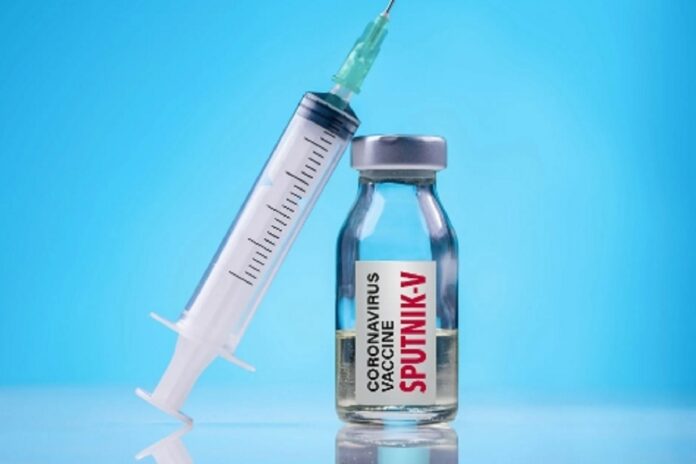Vaccine. The entire world has waited with bated breath for any signs of that elusive precaution against the raging global pandemic. And in 2021, a spate of countries, and companies, announced their versions of the vaccine.
Here’s some good news on the Covid-19 front. In a notice issued to the Pakistan Stock Exchange on February 2, the pharmaceutical company AGP said that Drug Regulatory Authority of Pakistan, also known as DRAP, has granted the emergency use of the Gam-COVID-Vac, combined vector vaccine against the Covid-19, also known as SARS-CoV-2 virus. The vaccine is known as Sputnik V.
And if that name sounds familiar, it is because Sputnik V is a Russian vaccine. According to AGP, the vaccine was developed by the Gamalama National Center of Epidemiology and microbiology, Russia, one of the world’s leading research institutions. This vaccine has been approved by fifteen countries, including Russia, Hungary, Argentina and the UAE. As per the interim clinical study report which is based on the Phase III trials of 21,862 volunteers, the efficacy of Sputnik V has been determined at 91.6% with 10% efficacy against severe cases of Covid-19.
“This is by far the most effective Covid-19 vaccine to have been received EUA in Pakistan, and can be administered to person aged 18 and above, including persons aged above 60.”
The company has also been authorized to import and introduce the vaccine and is now making efforts to ensure availability of sufficient supplies on an emergency basis order to play a key role in supporting the governement;s objective of vaccinating the masses’.
That is a lot to geist here. One thread of information has to do with the company, AGP. The second has to do with global vaccines, and how Pakistan is handling its own vaccination program.
Let’s tackle the easier one first: exactly what is the company AGP that is distributing these vaccines? AGP Limited (AGP) began its commercial operations in 1989 as an independent pharmaceutical manufacturing company in Karachi, Pakistan. It manufactures and markets products under licensing arrangements with many international companies, and also through manufacturing and marketing its own brands.
Aitkenstuart Pakistan (Private) Limited (parent company) holds 52.98% of the share capital of the company, and West End 16 Pte Limited, Singapore is the ultimate parent company. Though it has been around since 1989, it was only incorporated as a public limited company in 2014, and was listed on the Pakistan Stock Exchange in March 2018.
From the very beginning, the company had an international bent. In 1995, the company signed an agreement with UCB Belgium to manufacture and market their reports. In 2006, the company signed an agreement with OM Switzerland to manufacture their products. It purchased the brand rights for Rigiz in 2007, and signed an agreement with Mylan to sell their products in Pakistan in 2015.
So, why is it a big deal that AGP is distributing the vaccine? Because the company uses Muller and Phillips Pakistan, which is the largest distribution network for pharmaceuticals in the country. It has 65 branches in Pakistan, with access to about over 46,000 pharmacies. Granted, the vaccine rollout will not be in small pharmacies, but it is important to note that AGP understands scale better than most.
So. to the second point: where is Pakistan when it comes to vaccination? Our vaccination programme officially started on February 2, when the first ever jab was administered to a doctor in Islamabad. Most of Pakistan’s vaccines come from China: SIinophram, and the CanSinoBIO vaccine. According to Special Assistant to the Prime Minister (SAPM) on Health Dr Faisal Sultan , the CanSinoBIO vaccine has shown a 74.8% efficacy in preventing symptomatic cases and a 100% success rate in stopping severe disease among Pakistanis in an interim analysis.
DRAP has not only approved Sinopharm, but also the Oxford-AstraZeneca vaccine. Pakistan is also set to receive vaccines through Covax, an international alliance that has pledged free vaccines for 20% population of around 190 countries, including Pakistan. According to Planning Minister Asad Umar, 17 million doses of the AstraZeneca vaccine would be provided to Pakistan in the first half of 2021, through Covax.
Somewhat optimistically, Dr Sultan also said that the government aims to get at least one million doses of coronavirus vaccines by March, and hoped to inoculate 70% of the country’s population against the virus.
Online and otherwise there has been chatter: has Pakistan just randomly been approving vaccines that are manufactured by China and Russia? Are not Moderna, Pfizer-BioNtech or AstraZeneca better vaccines? There has been deep suspicion regarding the actual efficacy of these vaccines, and the idea that both countries have somehow fudged the numbers.
A recent New York Times opinion piece titled “Its time to trust China’s and Russia’s vaccines’ (apt heading) attempted to debunk this line of thought. Whether or not one agrees with the arguments put forward, the opinion piece did raise a few facts. For one, many rich countries have already bought western vaccines (all of Moderna’s vaccines and 96% of Pfizer-BioNTech’s have been bought up).
Secondly, the World Health Organization signs off on vaccines from a list of regulatory authorities quite rapidly. For every other country, the W.H.O. conducts a full evaluation from scratch, including a physical inspection of the manufacturing facilities.
The problem is, the list only includes Europe, Australia, Canada, Japan, and the US – that’s it. Russia and China’s vaccines simply haven’t gotten that official stamp of approval, because of the way the UN was set up in the 1940s. So in short: Sputnik V, and others, are our best shot at combating the virus.

























